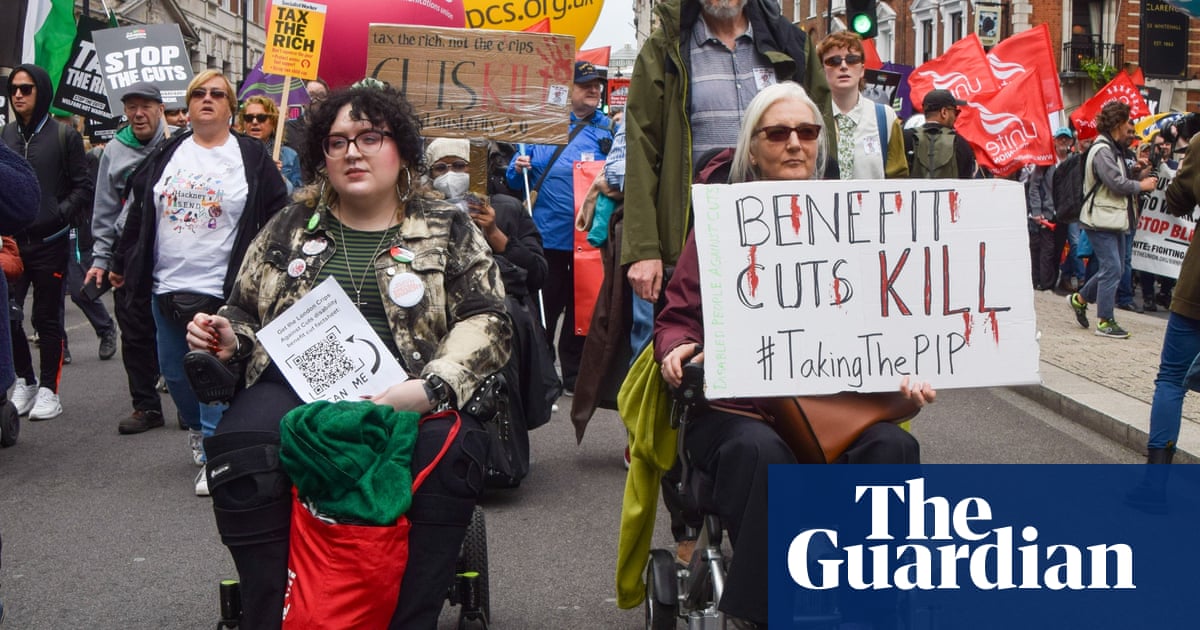Downing Street has announced major changes to its welfare bill in an attempt to win the support of more than Labour 120 rebels who had threatened to vote against it next week and handKeir Starmera damaging first defeat as prime minister.
Liz Kendall, the work and pensions secretary, wrote to Labour MPs on Thursday night to lay out the concessions, which were thrashed out over 24 hours of negotiations between senior rebels and government officials.
The compromises, which wererevealed by the Guardianon Thursday, include exempting everyone currently receiving disability benefits from the changes and increasing the health element of universal credit in line with inflation.
Kendall said she would bring forward a more fundamental review into the personal independence payment (Pip) system and increase the amount of money to be spent on back-to-work schemes. Ruth Curtice, the head of the Resolution Foundation think tank, said the changes would cost around £3bn – money she said was likely to come from tax rises.
Kendall said in her letter: “We have listened to colleagues who support the principle of reform but are worried about the impact of the pace of change on those already supported by the system.”
She added: “Taken together it is a fair package that will preserve the social security system for those who need it by putting it on a sustainable footing, support people back into work, protect those who cannot work and reduce anxiety for those currently in the system.
“Thank you to colleagues for engaging with us on these important reforms to social security.”
Meg Hillier, the chair of the Treasury select committee, who had led the rebellion, told BBC Radio 4’s Today programme on Friday: “It is an offer that makes a huge change to disabled people, and that’s what’s really at the core of this. It’s about supporting vulnerable people.”
She added:” I’ve already had a flurry of messages from people saying that they feel this is a good step forward. And if you think about where we were on Monday… this is a major change, and it’s an important change to reassure those people.”
More than 120LabourMPs had signed an amendment to the bill calling for it to be paused indefinitely over concerns about the impact on disabled people. MPs were particularly concerned that the cuts, which were due to save £5bn, would make it too difficult to claim Pip.
Many of those rebels indicated on Thursday night they remained opposed to the measures, with some warning about the creation of a “two-tier” benefits system that distinguishes between existing and new claimants.
The Labour backbencher Alex Sobeltold BBC Two’s Newsnightprogramme: “Whether you acquire disability at birth, five years ago or tomorrow, it should be the same for everyone.”
Sign up toFirst Edition
Our morning email breaks down the key stories of the day, telling you what’s happening and why it matters
after newsletter promotion
His colleague Nadia Whittometweeted: “These concessions aren’t enough and they should worry us all. If you become disabled tomorrow, you risk not having the support you need.”
Rachael Maskell, the Labour MP for York Central, said: “I and many more cannot accept this backroom deal.”
However, it is understood all the select committee chairs who signed the rebel amendment are now backing the government, meaning dozens of other moderates are likely to do the same.
Some disability charities backed the changes. Jackie O’Sullivan, the director of strategy at the learning disability charity Mencap, said: “It is the right thing to do and sends a clear message – cutting disability benefits is not a fair way to mend the black hole in the public purse.”
The MS Society, however, accused the government of “kicking the can down the road and delaying an inevitable disaster”.
Government whips believe they now have the votes to win on Tuesday, having come perilously close to defeat on one of the government’s big economic policies.
Stephen Kinnock, the health minister, told BBC Breakfast: “I am confident that this bill will come forward on Tuesday and will receive its second reading.”But he added: “We’re also changing the system for people on universal credit, which will give them the biggest uplift since the 1980s and we’re scrapping reassessments for people who are clearly not able to work … None of that will be possible if the bill doesn’t pass on Tuesday.”
